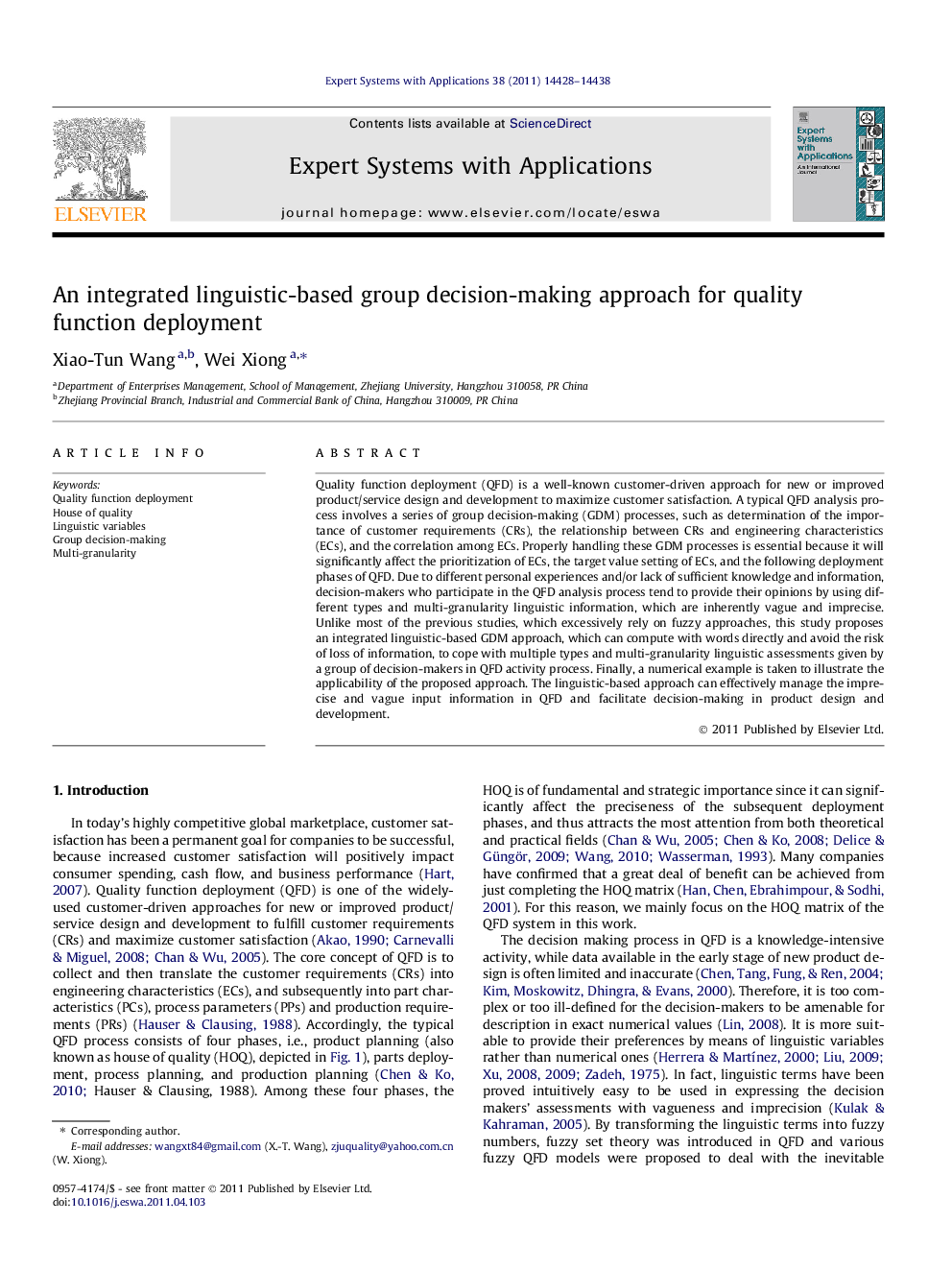| Article ID | Journal | Published Year | Pages | File Type |
|---|---|---|---|---|
| 385066 | Expert Systems with Applications | 2011 | 11 Pages |
Quality function deployment (QFD) is a well-known customer-driven approach for new or improved product/service design and development to maximize customer satisfaction. A typical QFD analysis process involves a series of group decision-making (GDM) processes, such as determination of the importance of customer requirements (CRs), the relationship between CRs and engineering characteristics (ECs), and the correlation among ECs. Properly handling these GDM processes is essential because it will significantly affect the prioritization of ECs, the target value setting of ECs, and the following deployment phases of QFD. Due to different personal experiences and/or lack of sufficient knowledge and information, decision-makers who participate in the QFD analysis process tend to provide their opinions by using different types and multi-granularity linguistic information, which are inherently vague and imprecise. Unlike most of the previous studies, which excessively rely on fuzzy approaches, this study proposes an integrated linguistic-based GDM approach, which can compute with words directly and avoid the risk of loss of information, to cope with multiple types and multi-granularity linguistic assessments given by a group of decision-makers in QFD activity process. Finally, a numerical example is taken to illustrate the applicability of the proposed approach. The linguistic-based approach can effectively manage the imprecise and vague input information in QFD and facilitate decision-making in product design and development.
